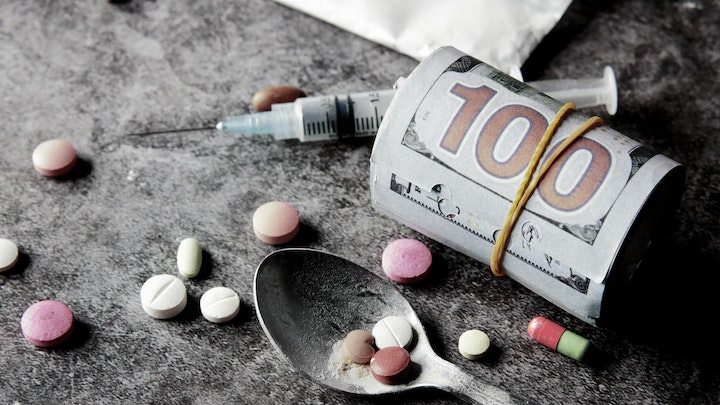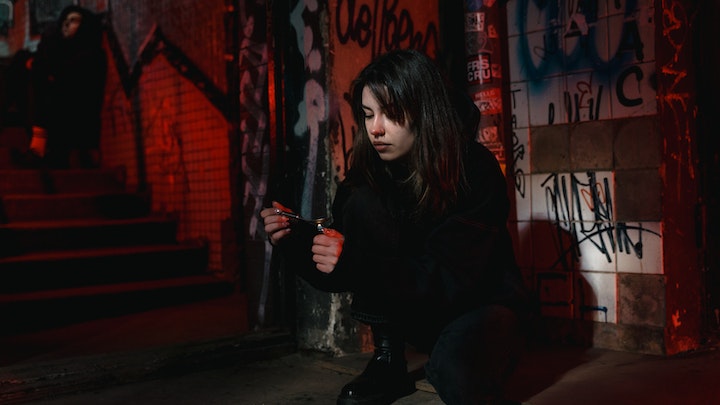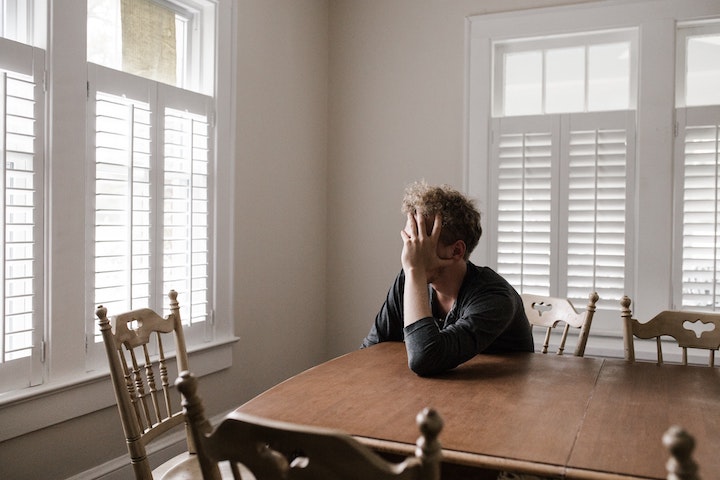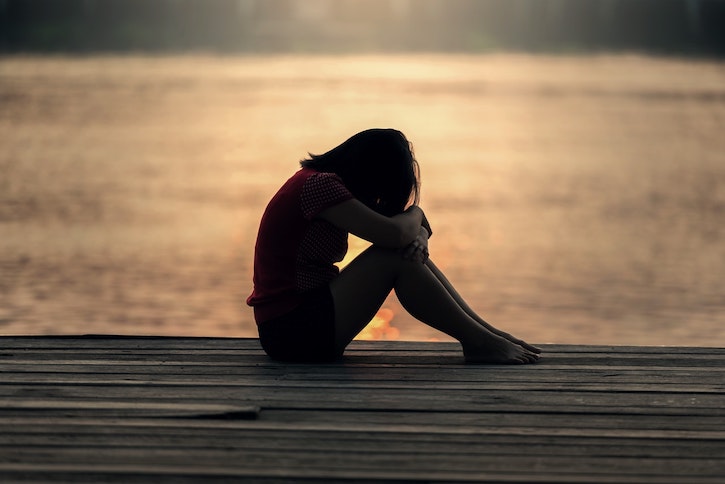As we are hard-wired to seek pleasure and avoid pain, it’s no secret that your brain enjoys the pleasurable sensations that come with using cocaine.
It naturally wants to repeat this feeling, even if you have made a vow to never use this substance again. [1]
This can result in intense and frequent cravings for cocaine that can feel impossible to resist, and giving in to these cravings is known as a relapse.

The true definition of relapse is when someone resumes the use of a substance that they had previously chosen to avoid, no matter how long it has been since they stopped using it.
Relapse is a very normal part of recovery, with 40% to 60% of people experiencing a relapse after attending addiction treatment.
However, it can be extremely dangerous and potentially lead to an overdose as your tolerance for cocaine will naturally drop after you stop using it for some amount of time. [2]
If you attempt to ingest your usual dosage of cocaine, your body may no longer be able to handle it and can begin to shut down.
To successfully prepare for and manage a relapse, it’s important to understand why they occur and any warning signs to look out for.

If you have never experienced cocaine addiction, it can be difficult to understand why someone would go back to using the substance that is the cause of many of their problems.
There are many complex reasons why people experience cocaine relapse, but it can often feel like their only choice when they are struggling with triggers and other uncomfortable feelings.
Many people use cocaine as a way to cope with the stressful events and emotions that naturally occur throughout their life. When this substance is removed, it can be very difficult to navigate difficult times without resorting to cocaine once again.
Cocaine is extremely psychologically addictive, and most people will experience strong cravings to use this substance despite the harm it causes.
Sometimes, these cravings can feel impossible to resist and without effective support can lead to a relapse.
Experiencing a cocaine relapse is not a moral failing – in fact, it isn’t a failure at all. It can be a completely normal part of recovery and an opportunity to reevaluate your techniques and try again.

Although you may feel confident and prepared after completing a cocaine addiction treatment programme, it’s important to acknowledge and accept the fact that you are still at risk of relapse even months or years after treatment.
Many things can cause a relapse after treatment, and you will likely come across one or more of the below factors once you leave rehab.
Common causes of a cocaine relapse include:
It’s impossible to avoid many of the above causes, so it’s important to recognise the warning signs of a cocaine relapse and seek help if you notice any of them.

In the vast majority of cases, a cocaine relapse doesn’t happen overnight.
Instead, a number of things will culminate that can result in a relapse and there are often several warning signs before this takes place.
Continue reading to learn more about the warning signs and symptoms that may indicate a potential cocaine relapse.
Life can creep up on us, and various work and family commitments can leave us feeling drained and stressed with too much on our plates.
If you’re feeling more stressed than usual, lean back into the stress-management techniques that you learned at rehab or during counselling. [4] This can save you from a potential cocaine relapse.
You may have stopped thinking and talking about the downsides of cocaine recovery, and instead may be glamorising your old life and focusing on the good times.
Try to remember that you entered treatment for a reason – while you may feel nostalgic when looking back with rose-tinted glasses, that time of your life was likely chaotic, dangerous and unhealthy.
If you find yourself frequently craving cocaine again, even though you have been in active recovery for a while, this may be a warning sign that a potential relapse is approaching.
Try to be mindful of any triggers that may be causing these cravings and take steps to manage them in a healthy way or cut them out of your life entirely.
Addiction recovery is not linear, and there will be many times when you believe that you aren’t making progress and may even be going backwards.
When people in recovery begin to talk negatively about treatment, this can be a relapse warning sign as they may be at risk of slipping back into old patterns.
Are you withdrawing from others and feeling lonely and isolated as a consequence? This often happens before a relapse, so it’s important to be mindful.
Get back in touch with people who understand what you’re going through, and work on forming connections that leave you feeling positive and fulfilled.
When you stop attending counselling or support groups, you are making a conscious or subconscious decision to avoid focusing on your recovery.
If you notice that you or someone you know has stopped attending any form of treatment, this can be a cocaine relapse warning sign and should not be ignored.
One of the most helpful things you will learn during cocaine rehab is how to create an effective self-care routine which may involve eating healthy meals, exercising regularly and staying clean and well-groomed.
If this routine begins to slip, it can be a sign of a potential cocaine relapse and steps should be taken to ensure you get back on track.

You are not alone in experiencing a cocaine relapse, and there are many things that you can do to turn a potentially negative experience into a learning opportunity and motivation to change.
It’s crucial that you are kind to yourself during this time, instead of beating yourself up and considering your attempt at recovery a failure.
Forgive yourself for the relapse and show yourself compassion, as this will make you less likely to relapse in the future.
If you haven’t already, create an effective relapse prevention plan with the help of your counsellor or mentor.
This is a collection of documents, worksheets, techniques and tips that you can refer back to during the weeks, months and years after your recovery and can help you stay on track.
Don’t keep your emotions and feelings bottled up inside. Instead, reach out to someone you trust and let them know what you’re going through.
You may be surprised at how much better you feel after talking about the relapse with a friend, family member, mentor or counsellor, and this small action can help you to avoid feelings of loneliness and isolation.
Similar to the above point, attending a support group meeting and surrounding yourself with people who share similar experiences can be extremely helpful after you have relapsed from cocaine.
You can choose to speak to the group or simply listen to others as they share their own feelings, and this can help you to feel like part of a community and reminds you that you are not alone.
Think about why you chose to recover from cocaine addiction as well as all the reasons you have to continue your recovery.
Remembering that a relapse is not the end of your recovery journey but simply a bump in the road that most people will experience can help you to see the many reasons to keep going.

If you are thinking about entering treatment for cocaine addiction, have recently relapsed or feel that you are at risk of relapsing, call our Rehab 4 Addiction team on 0800 140 4690 for non-judgemental and confidential advice.
You can also speak to your GP for advice and ask to be referred to a specialised rehab clinic or a local drug and alcohol support team.
Remember, you are not alone. We are here to help you make a full recovery and start your new life free from cocaine relapse and addiction.
[1] https://www.ncbi.nlm.nih.gov/pmc/articles/PMC2851032/
[2] https://www.ncbi.nlm.nih.gov/pmc/articles/PMC3674771/
[3] https://www.frontiersin.org/articles/10.3389/fphar.2021.750397/full
[4] https://www.brown.edu/news/2017-04-11/stressrelapse